
Your browser does not support javascript.
To enable you to access the information, we suggest you view the video in a new tab.

Why contribute to building a Net Zero energy future?
Essential to our lives, energy gives us light, heat and food whilst also enabling us to travel, produce, communicate, learn and innovate. Among all energies, electricity is an essential commodity that should be available to everyone wherever they live. It is also the key driver of progress in an increasingly digital world. Wherever our Group operates, we want to invent a new energy model to address the climate crisis: lower-carbon, more efficient, less of an impact on the environment and on people. Loyally upholding the values of public service, EDF is committed to a fair, innovative and sustainable energy future.

How to contribute to building a Net Zero energy future?
By giving all our customers – be they residential users, businesses or local communities – the opportunity to act by providing them with services and solutions that enable them to use energy more efficiently and in smaller quantities, tailored to their needs and aspirations. By providing the most cost-effective and even less carbonised electricity, through the use of nuclear and renewable energy sources. By drawing on our industrial expertise and by constantly seeking to improve our performance. By forging partnerships with all institutions, economic players and innovative ecosystems, both in France and the rest of the world. By encouraging the talent and commitment of the women and men who are EDF group’s driving force.
EDF Group takes actions to reach carbon neutrality by 2050
EDF commits to achieving carbon neutrality before 2050, by pursuing or implementing three types of action: reach net zero, or almost zero, direct CO₂ emissions, reduce our indirect CO₂ emissions and offset residual emissions with negative emission projects.
Reach Net Zero or almost zero direct CO₂ emissions by 2050
In 2018, the Group had already committed to significantly reduce its direct carbon dioxide emissions with a target of 30 million tonnes in 2030 instead of 51 million tonnes in 2017 (i.e. a 40% reduction). EDF group confirmed this ambition in 2020 by signing the "Business Ambition for 1.5 °C" commitment. We assert our pledge for carbon neutrality by 2050 and make new commitments to lower our direct emissions by 50% in 2030. Intermediate objectives for 2023 and 2035 are being set. The Group is also committed to obtaining a SBTi certification, which promotes a methodology for assessing and monitoring reductions of greenhouse gas emissions, in line with the objectives of the Paris Climate Agreement.
Going further in CO₂ emission reduction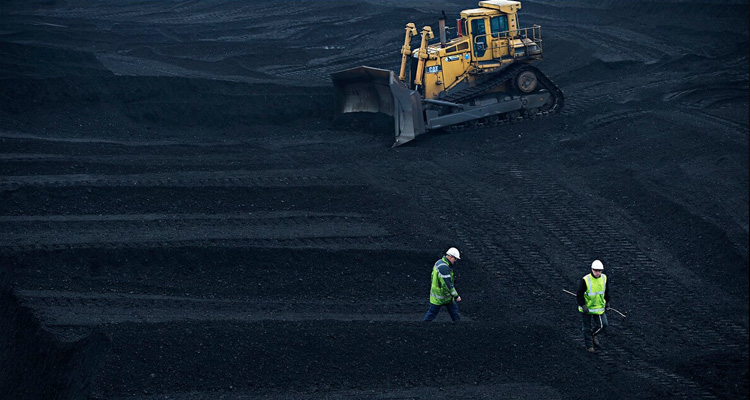
Numerous coal and fuel oil fired power plants closed since 2010
Permanent closure of EDF’s last coal-fired power plant in the United Kingdom, West Burton A, on 31 March 2023. EDF proceeded to shut down the Le Havre power plant on 1 April 2021. 82% of the last coal units operated by the EDF group were closed between September 2019 and December 2023. In 2019, the Group committed to phase out coal-based electricity generation through to 2030, across all regions. The Group also undertook to not finance coal activities that are not present in its portfolio in 2019.
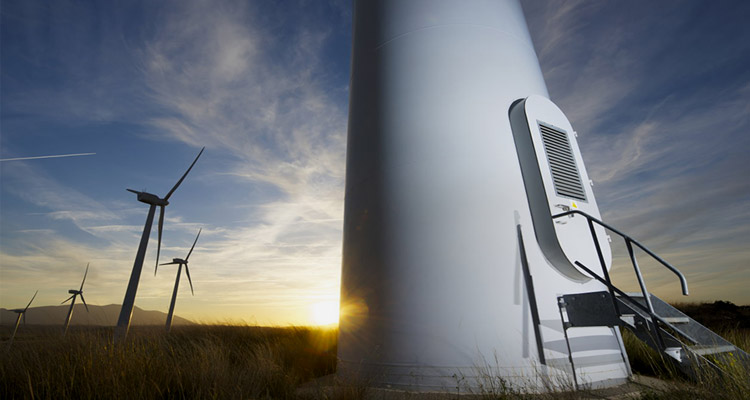
A strong acceleration in renewable energy development
EDF group invests in the development of renewable energies worldwide to double our installed renewable energy capacities, between 2014 and 2030, and reach 50 GWe in 2030.
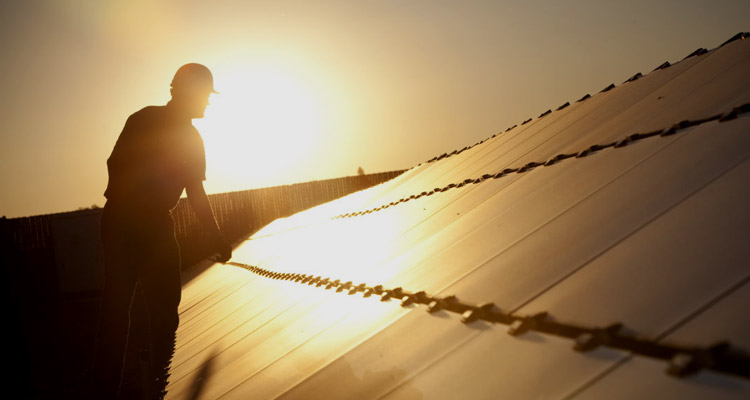
Significant investments to decarbonise the energy system
Over 90% of EDF group's net investments contribute to the decarbonisation of the electricity system. Thus in 2018, € 12.7 billion investments were dedicated to the generation of renewable and nuclear electricity, electricity networks and energy services. Moreover, for two years, EDF R&D has been dedicating 95% of their investments in France to the decarbonisation of the Group and to the transition of energy systems. In 2019, EDF invested 713 million euros in research and development following three transition focuses: electricity, climate, digital and society.
Reduce indirect CO₂ emissions
EDF group is convinced that reaching net zero emissions will only be achievable through a strategy targeting all its emissions, including these of its customers. That is why, at the beginning of 2020, we chose to reinforce our climate commitments and including, for the first time, the commitment to reduce our indirect CO₂ emissions.

Development of green electricity offers
EDF supports its customers by developing offers enabling to contribute to CO₂ emission reduction. For example, the "Vert électrique Bretagne" (Lit. Brittany Green Electric) offer, launched in 2020, guarantees subscribing customers that their electricity, bought by EDF, has been produced by renewable energy generation plants located in Brittany, thus enabling customers to contribute to the energy transition of Brittany in a concrete way.

Energy efficiency: solutions to manage energy consumption
EDF offers a wide range of solutions to help its customers follow their energy consumption. These include consumption monitoring solutions, eco-gesture simulator, and assistance in choosing eco-efficient equipment.
Offset residual emissions with negative emissions projects
Reducing direct and indirect CO₂ emissions is unlikely to lead to zero emission. To offset its residual emissions, EDF will commit to execute a series of labelled negative emission projects, such as carbon sequestration in natural sinks (forests and soils) or reforestation of 4.5 hectares of sick plots in La Manche, France.
EDF Group takes actions to contribute for earth conservation
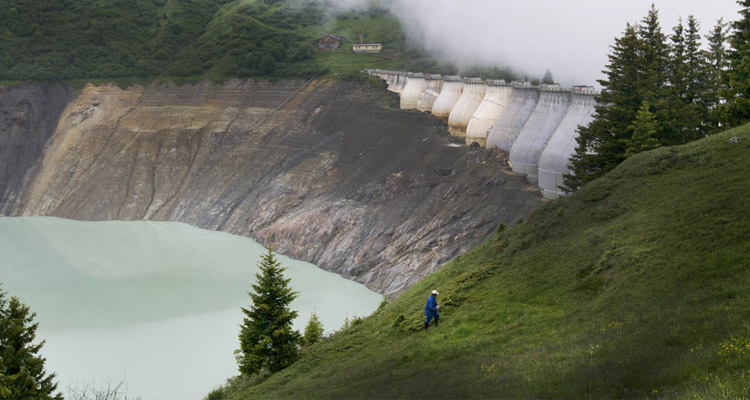
Biodiversity conservation
Protecting biodiversity is one of the Group's 12 CSR commitments. Recent hydraulic projects (Romanche-Gavet, Kembs both located in France) bear witness to this: EDF has gone beyond its regulatory obligations to restore rivers and their surroundings, thus enhancing biodiversity, in continuous consultation with all of the local stakeholders.

Joining EV100 program: 100% electric automobile fleet in 2030
In 2017, EDF was the first French company to join the EV100 program: the Group is committed to converting its entire vehicle fleet to electric vehicles by 2030 wherever we operate. At the end of 2019, the Group's light vehicle fleet included more than 3,800 electric vehicles distributed in 10 countries, i.e. 8.6% of said fleet of more than 44,000 light vehicles. In 2020, and in line with its electric mobility plan, the Group will acquire an additional 1,500 electric vehicles to reach a total of more than 5,000 electric vehicles in its fleet of light vehicles by the end of the year. In 2020, the Group will also invest in charging infrastructure for electric vehicles and especially on for its premises, especially on 40 major sites in France, the United Kingdom, Belgium, Italy and the United States.
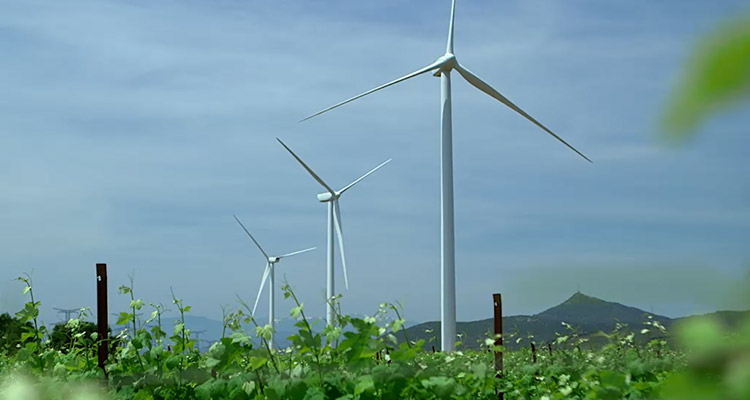
EDF is a reference issuer in the sustainable finance market
The Group was a pioneer in the issue of Green Bonds. Since November 2013, it has issued the equivalent of around €16bn in Green Bonds to support its strategic development. Green Bonds are fully integrated to the Group’s financing policy. The Group’s financing framework for green bonds (the Green Bond Framework) includes financing of new wind and solar power projects, investments to renovate and modernise its hydropower assets in mainland France and internationally, energy efficiency projects, and biodiversity protection projects. In July 2022, it was renamed the Green Financing Framework in order to contribute to best market practices, cover a broader range of its activities and comply with European taxonomy alignment. Its scope of application has been broadened by adding two new categories: distribution networks and nuclear generation assets.
More information about EDF and the sustainable finance market

EDF employees are mobilised to reduce their carbon footprint
« Combattre le CO2, ça commence par nous » (lit. "Fighting CO₂ begins with us") is an EDF initiative, which suggests all Group employees in France to become energy transition ambassadors by making a personal commitment to better manage their energy consumption and reduce their carbon footprint. EDF will also run among its employees "The Climate Collage”, an awareness program on climate issues and eco-responsible lifestyles.
The in-house valorisation of "small everyday gestures" is bearing fruit too. As a result, we note a significant reduction in paper consumption within the Group (-18.2% of paper prints in 2019 compared to 2018). Other examples include the increase in remote meetings (28% more than in 2019 compared to 2018) or even the gradual elimination of plastic and disposable supplies (cups, water bottles, etc.) in the main tertiary buildings and especially in the Group's training centres.

